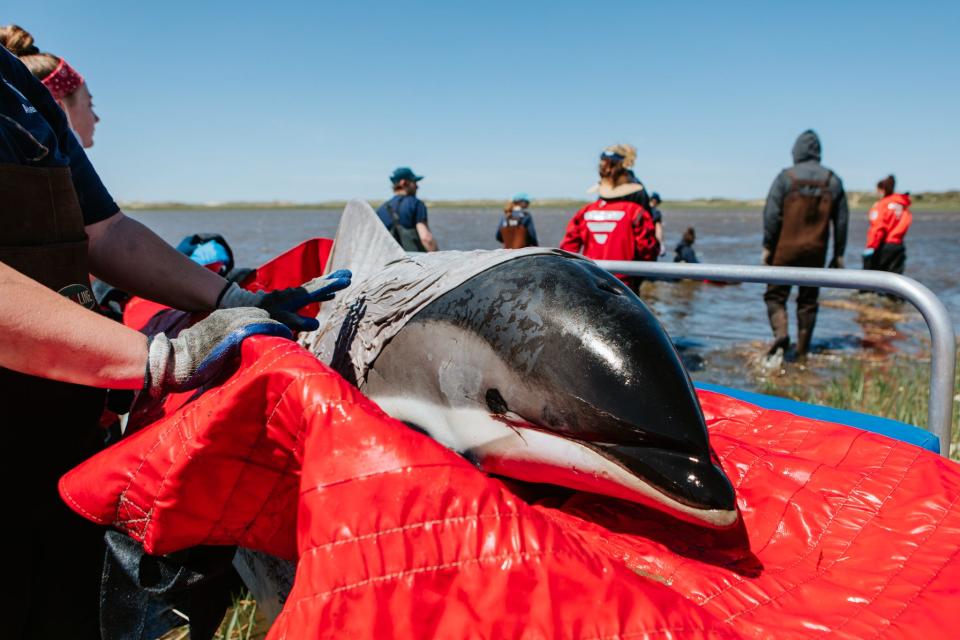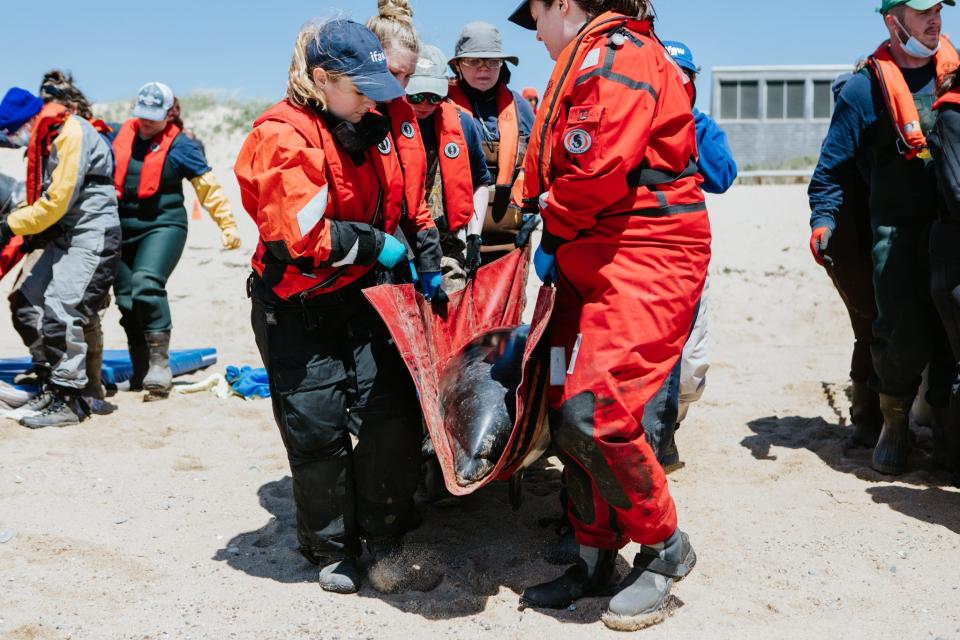Seven stranded dolphins rescued in Wellfleet, released at Provincetown beach
WELLFLEET — The International Fund for Animal Welfare (IFAW) released seven Atlantic white-sided dolphins from Herring Cove Beach in Provincetown on Wednesday after the marine mammals were stranded in Wellfleet.
Initial calls and photos sent to the Stranding Hotline, a phone line by IFAW for reporting stranded marine mammals on the shores of Cape Cod and southeastern Massachusetts, alerted the group to three stranded dolphins in Wellfleet, according to a press release from IFAW.
More than 40 staff members, interns, AmeriCorp members and trained volunteers helped at the scene.

"It was tricky where the dolphins were actually located because they were further out, so we needed help to transport them," said Stacey Hedman, communications director for IFAW's Cape Cod team. "It was a pretty incredible group."
Responders arrived at the scene at 8 a.m. and moved the seven stranded dolphins to deeper waters in Provincetown via IFAW's mobile dolphin rescue clinic. They were released in a staggered pattern between 1:30 and 2 p.m., after one dolphin was tagged.
From the archive: Stranded bottlenose dolphin, rare to Cape Cod, was later released off Provincetown
More than two dolphins stranded at one time is considered a mass stranding, Hedman said, but since the Cape is considered a global stranding hotspot for many marine mammals due to its hook-like shape and large tidal fluctuations in Cape Cod Bay, it was expected IFAW would be called to an event like this.
Dolphins are social creatures that travel in packs, so IFAW tagged one using a satellite tag before releasing them, Hedman said.
"We usually put the tag on the weakest dolphin," she explained. "But since dolphins travel together we can monitor all of them that way. What we're most worried about is them washing up on shore again, so with the tag we can monitor where they go."

Satellite tagging is a crucial part of the dolphin rescue operation, Hedman said, and prior to 2010, when IFAW began tagging dolphins before releasing them, it was the industry standard to euthanize single-stranded dolphins because it was thought they wouldn't survive on their own once released.
Thank to data from IFAW's satellite tags, however, they have proven that single-stranded dolphins are able to be released, rejoin a pod and live long, healthy lives post-release.
Curious Cape Cod: The mysterious Mr. X and the discovery of a long-sought ancient grave
IFAW's Mammal Marine Rescue and Research Program (MMRR) has been in place on Cape Cod for 22 years. Since then, they have rescued more than 640 stranded dolphins, trained more than 200 Cape-based volunteers for mammal rescue operations and average 1,000 field calls per year.
As of Thursday, the tagged dolphin released from Provincetown was tracked approximately 24 miles east of Rockport.
This article originally appeared on Cape Cod Times: Dolphins stranded in Wellfleet released off Provincetown

